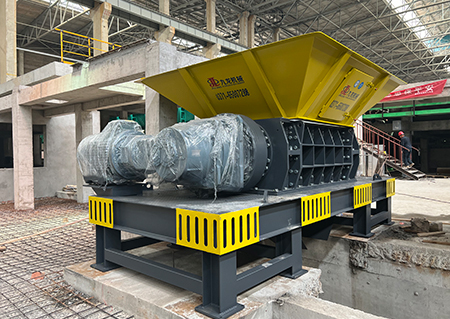
Tel/Whatsapp:+86 15649675999
Email:sale@kowloonmachine.com

Tel/Whatsapp:+86 15649675999
Email:sale@kowloonmachine.com
Article published:2024-05-07
How much electricity does a biomass shredder consume in one hour?
The energy consumption of a biomass shredder depends on several factors, including equipment type, specifications, workload, material type, and processing method. Generally speaking, the energy consumption of a biomass shredder varies depending on the following factors:
Double-shaft shearing biomass shredder
Kowloon biomass shredder project site

Equipment type and specifications: The power consumption of biomass shredders of different models and specifications will vary. Taking Kowloon Intelligent Environmental Protection as an example, our biomass shredders include single-shaft shredders, double-shaft shearing shredders, and four-shaft shearing shredders with an output ranging from 10 to 60 tons per hour. Large industrial shredders may require more electricity to handle larger volumes and higher densities of biomass.
Workload and throughput: The load and throughput of the shredder directly affect its energy consumption. More electricity may be required to process more or denser biomass.
Material type and characteristics: Different kinds of biomass (such as wood, straw, bagasse, palm leaves, etc.) have different densities, moisture and hardness, which will affect the energy efficiency of the shredder. Processing methods and shredding requirements: Shredders may require different energy levels to meet different shredding requirements. Fine shredding or processing harder biomass may require more electricity. Due to the complexity of these factors, it is difficult to accurately give the specific energy consumption of biomass shredders. Generally speaking, you can refer to the rated power of the equipment and the energy consumption data provided by the manufacturer as a reference, but the specific energy consumption will vary depending on the actual operating conditions.